The stories that must be written
When did writing stop being about pure joy?
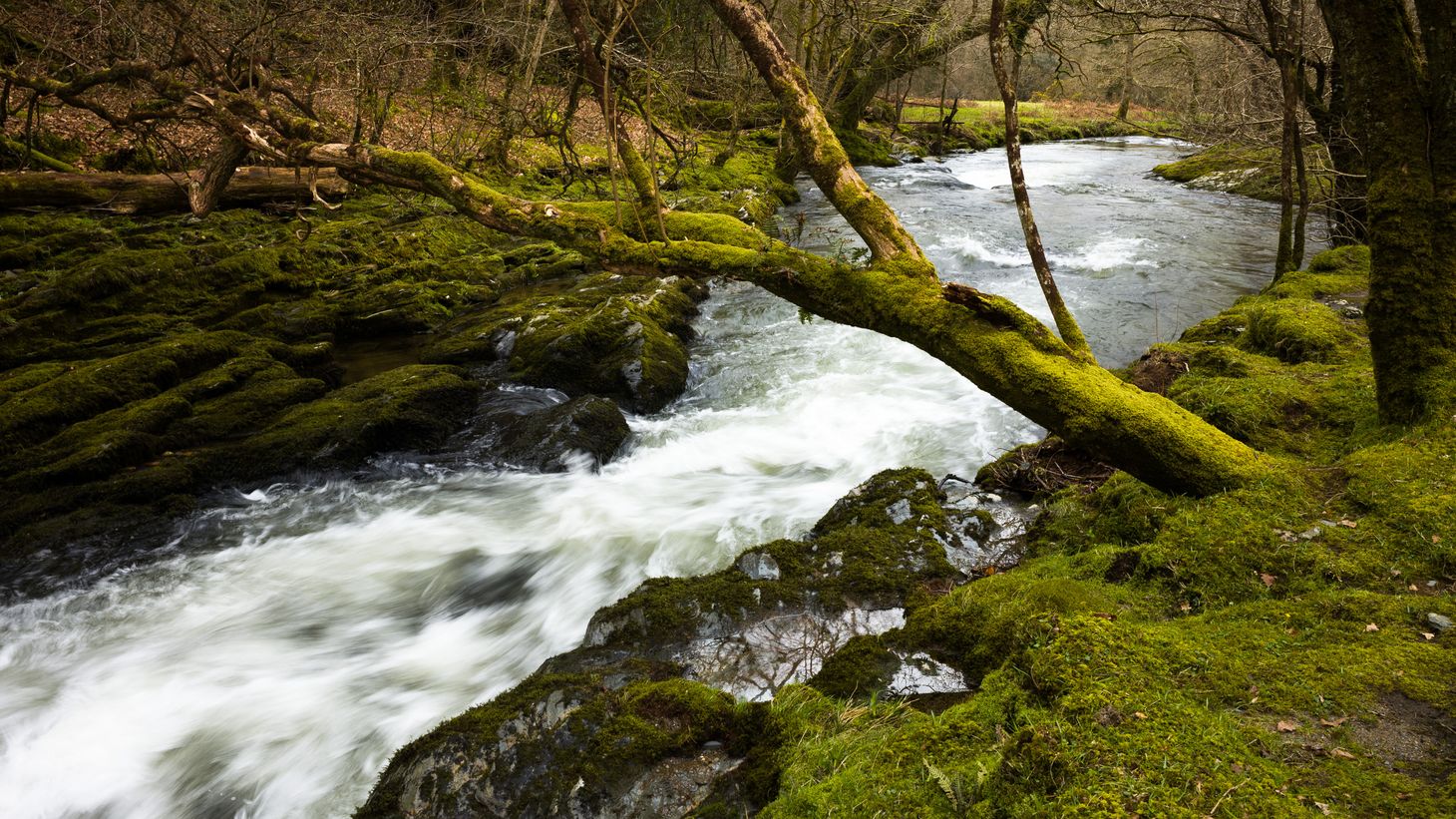
Over the years, I have written many times in this blog about my relationship with writing. It's changed a great deal. I consider it a privilege that I can broadly call myself a professional writer; although most of my income is from editorial work, the line between the two is woolly, and writing does contribute a fair bit towards paying the bills.
But this doesn't mean that I am content, and this blog post is about acknowledging this so that I can move on to doing something about it.
Last week I headed down to Dartmoor to visit my friend Emily Woodhouse. She is our sub-editor at Sidetracked magazine, but this trip wasn't about that – it was about going for a long hike together around Dartmoor, laughing at ponies and silly signs and the rubbish that came out of our brains after a few days on the trail, and talking about writing. Real writing. Like me, she has been a writer since she was a child, but unlike me she has not lost touch with the kind of writing that really matters: the stories that must be written.
Let me explain. I don't mean the stories that we are paid to write or expected to write (although, of course, we must also write these in order to have a job). I mean the other stuff. The characters and narratives that ceaselessly dance in our heads and clamour for the page whether we want them to or not.
It took me years to figure out that this is not a standard element of the human experience, and that so-called 'normal' people do not have a brain permanently inhabited by a cast of imaginary characters living there rent free. And then, tragically, I started to block it all out because I thought I had more important things to be doing.
For the last few years, I've somehow managed to convince myself that this side of me has fallen silent. That the great unending drumbeat of stories inside has, indeed, ended – or that I've outgrown it. The last time I attempted to write fiction was 2017. Since then I've been busy and my mind has rarely been quiet. Writing has got in the way of writing, ironically.
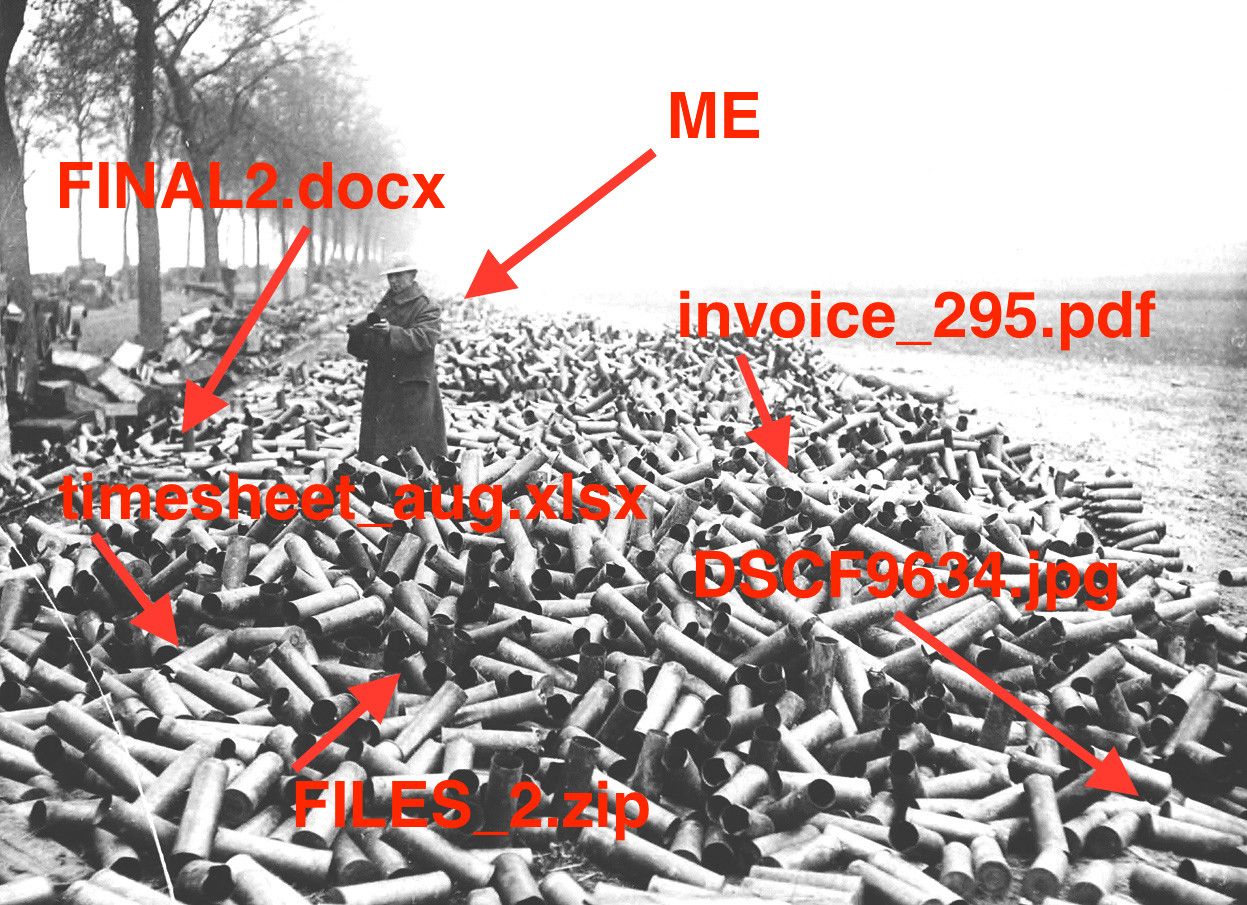
Where did all that energy go? That energy created so much of my early work – books that will never be published, but that was never the point.
Turns out that the energy went nowhere. I still have it. Emily asked me if I was going through a creative drought, and I realised that I had been – but that the stories had never stopped. I'd just lost the knack of listening. In the Alps last year, my 2017 novel had flowered into a new and more complex form. Daydreaming, some might call this – treading the strange sands of a distant imagined future as I ran through the Alps. Listening to the crack and rustle of solar sails unfurl above the Architect's citadel at dawn. Watching the rippling marshes painting the white towers and arches with reflected alpenglow. The adventures of the wandering poet, recounted late at night and far underground to people who have never seen a wild tree or flower. The Composer, the Last Interpreter, Old Organpipes. The long tragedy of Brightwind. These characters and ideas have been with me for years now, but only rarely do I let my mind be quiet enough to listen to it all.
It's so easy to dismiss all this as daydreaming, as the aimless firing of a writer's mind on the trail. Perhaps it says much about me that never wrote any of this down during the trip. Has my imaginative spark, once the most precious thing I possessed, become so withered? Am I so focused on my work writing that I no longer have room for these stories – that I can't hear them, and can't even recognise them when my mind is finally silent enough for a whisper to break through?
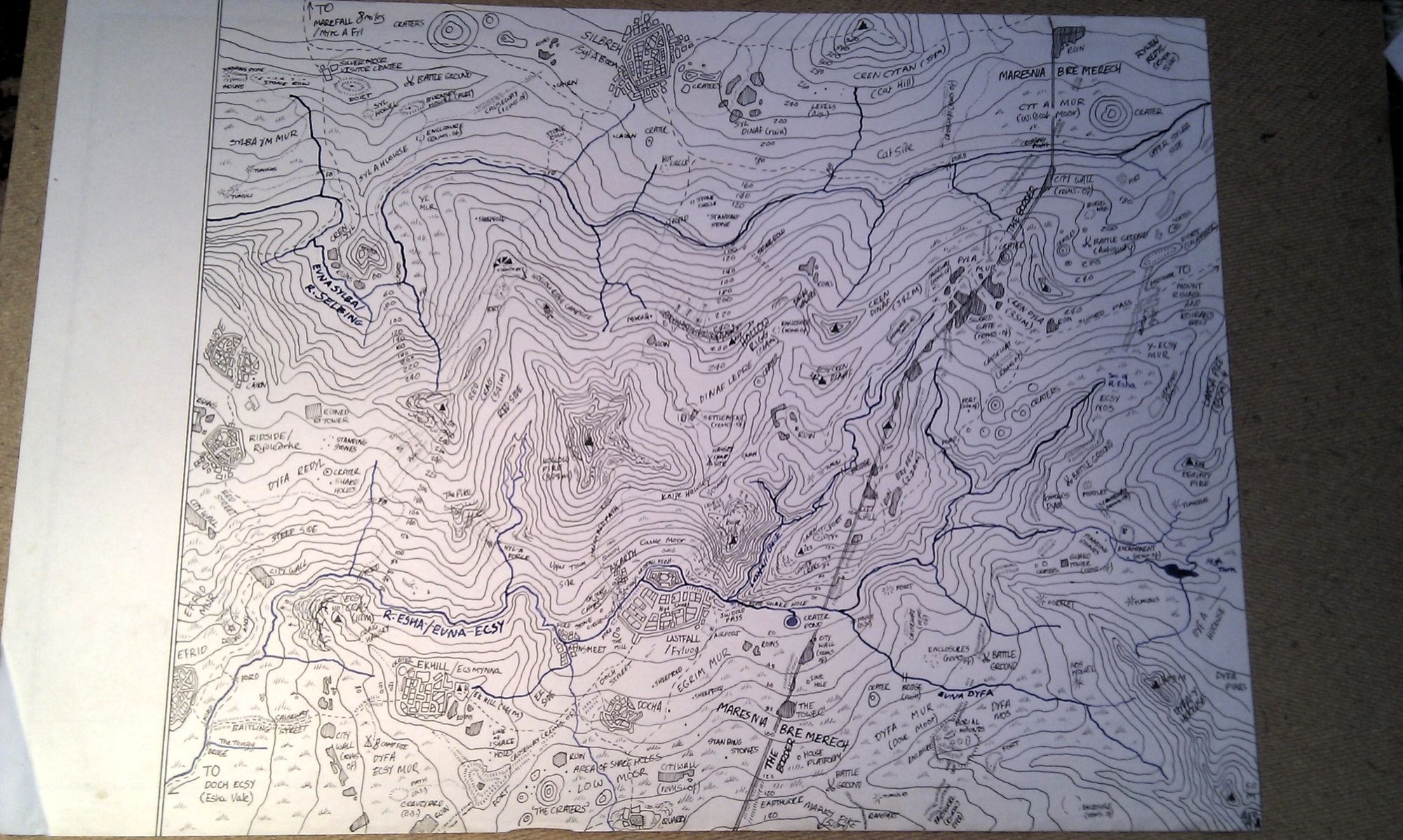
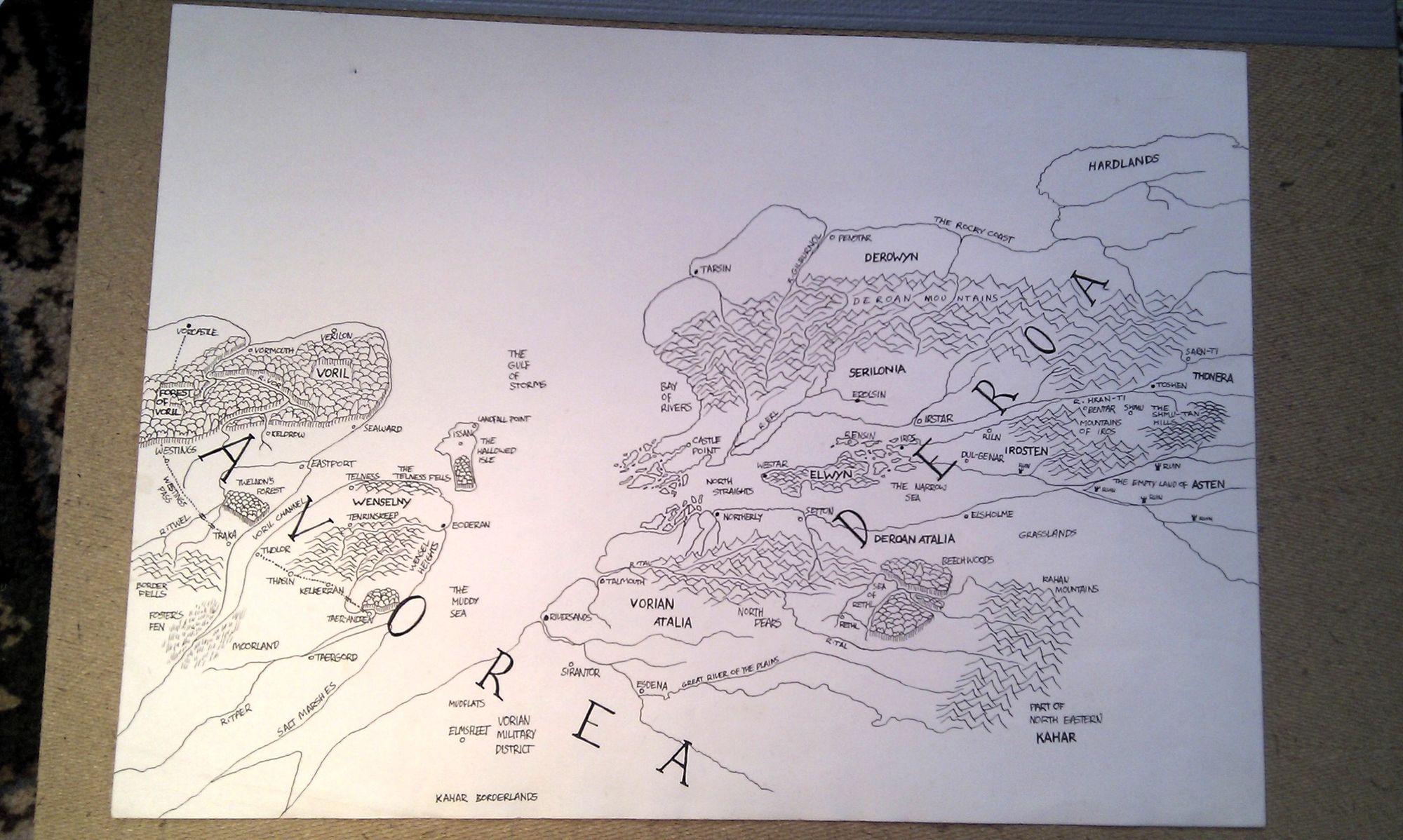
As I talked to Emily about all this, I realised that while my identity as a fiction writer has been through several long gaps over the years, it isn't something I can walk away from. Perhaps ever. I hope that the great river of internal narrative will never run dry. Our conversation made me realise that I have to make changes.
On the train home I wrote down everything I could remember about the torrent of ideas that had accompanied me across the Alps. I've dug out the 2017 handwritten manuscript of Brightened Earth and all my notes from back then.
And, once again, like so many times before, it is time to begin.
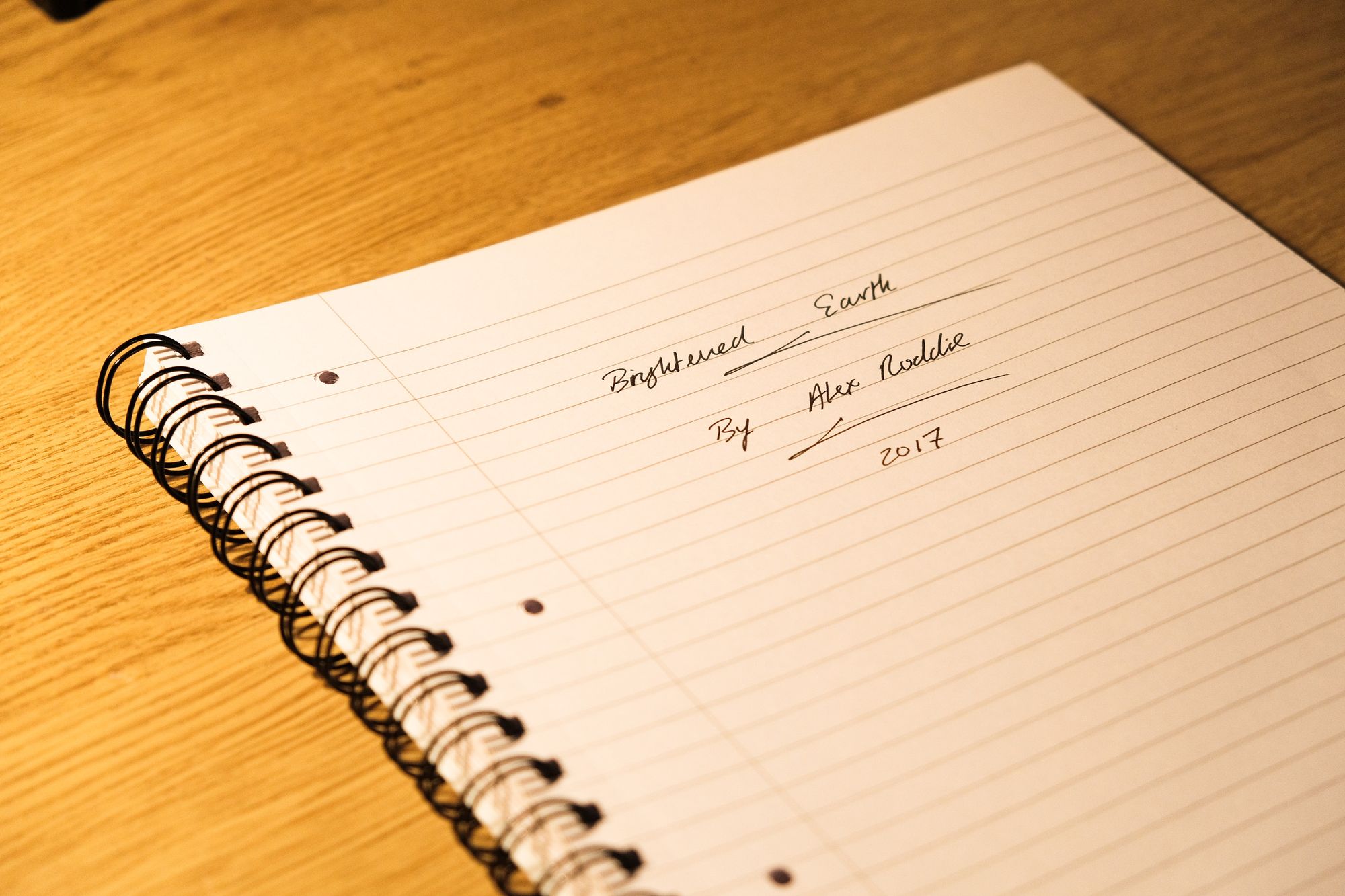
Alex Roddie Newsletter
Subscribe here to receive my occasional personal newsletter in your inbox. (For the fun stuff, please consider subscribing to Alpenglow Journal instead!)



